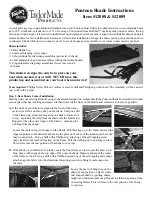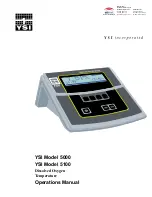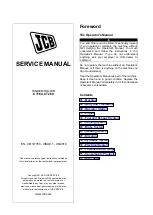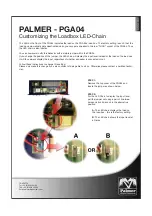
4-4
IM DLM4038-17EN
• When Separating Commands with <PMT>
If you separate two commands with a terminator,
two program messages will be sent. Therefore,
the common header must be specified for each
command even if commands belonging to the same
command group are being concatenated.
Example
:ACQuire:MODE
NORMal<PMT>:ACQuire:INTERLeave
1<PMT>
Upper-Level Query
An upper-level query is a query that is made by
appending a question mark to a command higher in
the group. The controller can receive all of the settings
in a group collectively by executing a highest-level
query. Some upper-level queries of a group, which may
be comprised of more than three hierarchical levels,
can cause the DLM4000 to transmit all the lower level
settings.
Example
:ACQUIRE? -> :ACQUIRE:AVERAGE:COUNT 2;
ACQUIRE:COUNT INFINITY;INTERLEAVE 0;
MODE NORMAL;RESOLUTION 0;
RLENGTH 125000;SAMPLING INTERPOLATE
The response to an upper-level query can be sent back
to the DLM4000 as a program message. This enables
the settings that were present when the upper-level
query was made to be reproduced later on. However,
some upper-level queries do not return setup data that
is not currently in use. Exercise caution because not
all of a group’s information is necessarily returned in a
response.
4.2 Commands
Header Interpretation Rules
The DLM4000 interprets the header that it receives
according to the rules below.
• Mnemonics are not case sensitive.
Example
CURSor
can be written as
cursor
or
Cursor
.
• The lower-case characters can be omitted.
Example
CURSor
can be written as
CURSO
or
CURS
.
• The question mark at the end of a header indicates
that it is a query. You cannot omit the question mark.
Example: The shortest abbreviation for
CURSor?
is
CURS?
.
• If the <x> (value) at the end of a mnemonic is
omitted, it is interpreted as a 1.
Example: If you write
CHAN
for
CHANnel<x>
,
CHANnel1
is specified.
• Parts of commands and parameters enclosed in
square brackets ([ ]) can be omitted.
Example:
TRIGger[:ATRigger]:SIMPle:LEVel
can be written as
TRIG:SIMP:LEV
.
However, the last section enclosed in brackets
cannot be omitted in an upper-level query.
Example:
TRIGger?
and
TRIGger:ATRigger?
are different queries.
















































